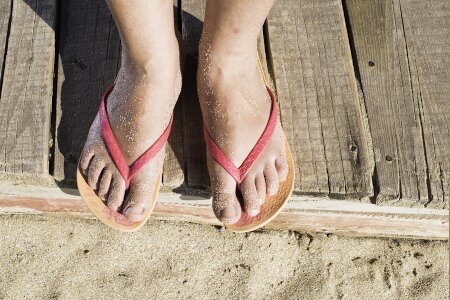*
Tôi gọi một chiếc bánh mì sandwich.
I order a sandwich.
Ich bestelle ein Sandwich.
Pido un bocadillo.
Je commande un sandwich.
Ordino un panino.
ฉันสั่งแซนวิช
나는 샌드위치를 주문했다.
我叫了一份三明治。
我 叫 了 一份 三明治 。 *
Tôi có một nghìn đô la Mỹ.
I have got one thousand U.S. dollars.
Ich habe tausend amerikanische Dollar.
Tengo mil dólares americanos.
J'ai mille dollars américains.
Ho mille dollari americani.
ฉันมีหนึ่งพันเหรียญสหรัฐ ดอลลาร์
나는 천 달러가 있습니다.
我有一千美金。
我 有 一千 美金 。 *
Tôi có mười nghìn đô la Mỹ.
I have got ten thousand U.S. dollars.
Ich habe zehntausend amerikanische Dollar.
Tengo diez mil dólares americanos.
J'ai dix mille dollars américains.
Ho diecimila dollari americani.
ฉันได้รับเงินหนึ่งหมื่นสหรัฐ ดอลลาร์
만 달러가 있습니다.
我有一萬美金。
我 有 一 万美金 。 *
Sân vận động này có thể chứa vài nghìn người.
This stadium can hold a few thousand people.
Dieses Stadion bietet Platz für mehrere tausend Menschen.
En este estadio caben varios miles de personas.
Ce stade peut contenir quelques milliers de personnes.
Questo stadio può contenere alcune migliaia di persone.
สนามกีฬาแห่งนี้จุคนได้ไม่กี่พันคน
이 경기장은 수만 명을 수용할 수 있습니다.
這個球場可以容納幾萬人。
这个 球场 可以 容纳 几万人 。 *
Con trai tôi thích chơi trên cát.
My son loves playing in the sand.
Mein Sohn liebt es, im Sand zu spielen.
A mi hijo le encanta jugar en la arena.
Mon fils adore jouer dans le sable.
Mio figlio adora giocare sulla sabbia.
ลูกชายของฉันชอบเล่นทราย
아들은 모래에서 노는 것을 좋아합니다.
兒子喜歡玩沙子。
儿子 喜欢 玩 沙子 。 *
Một bãi cát lớn trải dài từ đây.
A large sandbar stretches out from here.
Von hier aus erstreckt sich eine große Sandbank.
Un gran banco de arena se extiende desde aquí.
Un grand banc de sable s'étend à partir d'ici.
Da qui si estende un grande banco di sabbia.
สันดอนทรายขนาดใหญ่ทอดยาวจากที่นี่
이곳에는 거대한 모래톱이 펼쳐져 있습니다.
這裡延伸出一大片沙洲。
这 里 延伸 出一 大片 沙洲 。 *
Cát rất mịn.
The sand is very fine.
Der Sand ist sehr fein.
La arena es muy fina.
Le sable est très fin.
La sabbia è finissima.
ทรายก็ละเอียดมาก
모래가 아주 곱습니다.
沙子很細。
沙子 很 细 。 *
Rừng có thể ngăn chặn bão cát.
Forest can keep sandstorms at bay.
Wälder halten den Flugsand ab.
El bosque puede mantener a raya las tormentas de arena.
La forêt peut tenir à distance les tempêtes de sable.
La foresta può tenere a bada le tempeste di sabbia.
ป่าสามารถป้องกันพายุทรายได้
숲은 바람과 모래를 막을 수 있습니다.
森林可以阻擋風沙。
森林 可以 阻挡 风沙 。 *
Tôi bị chôn vùi trong cát.
I am buried in the sand.
Ich bin im Sand begraben.
Estoy enterrado en la arena.
Je suis enterrée dans le sable.
Sono sepolto nella sabbia.
ฉันถูกฝังอยู่ในทราย
나는 모래에 묻혔다.
我被埋在沙子裡了。
我 被 埋 在 沙子 里 了 。 *
Cái xô nhỏ chứa đầy cát.
The small bucket is full of sand.
Der kleine Eimer ist voller Sand.
El cubo pequeño está lleno de arena.
Le petit seau est plein de sable.
Il secchio è pieno di sabbia.
ถังเล็กเต็มไปด้วยทราย
작은 양동이에는 모래가 가득합니다.
小桶裡裝滿了沙子。
小桶 里 装满 了 沙子 。
| |
|
| SAIGONESE |
|---|
| I117 |  hàng ngàn hàng ngàn |  thousands of thousands of |  Tausende von Tausende von |
|
34 万: ten thousand: These shoes are ten thousand yen. 1628 サンドイッチ: sandwich: We're having sandwiches for lunch. 1655 ハム: ham: Can I have a ham sandwich, please? 2026 何千: several thousand, thousands: The newspaper company has received thousands of e-mails. 3357 転がる: roll over: The cat rolled over on the sand. 3441 ざらざら: rough, gritty: The top of the desk is gritty with sandy dust. 4878 砂: sand: I got sand in my shoes. 5434 滅びる: perish, die out: That civilization perished thousands of years ago. 5530 砂浜: sand beach: I strolled on the sand beach early in the morning. 6040 下駄: geta; wooden clogs: Japanese wooden sandals are worn barefoot. 8303 草履: Japanese sandals; zori: Everyone wore sandals in the olden days. 8566 滅亡: downfall; ruin: The civilization was destroyed thousands of years ago. 8686 潮: current; tide: When the tide is out, let's make a sandcastle. 8912 突っ掛ける: to slip on, slip into: He always slips on sandals. | TED Talk | Segment | Vietnamese | English | |



 sand: (beach)
sand: (beach) Sand {m} [sandy islet], Sandstrand {m}
Sand {m} [sandy islet], Sandstrand {m} 








 hàng ngàn
hàng ngàn  Tausende von
Tausende von